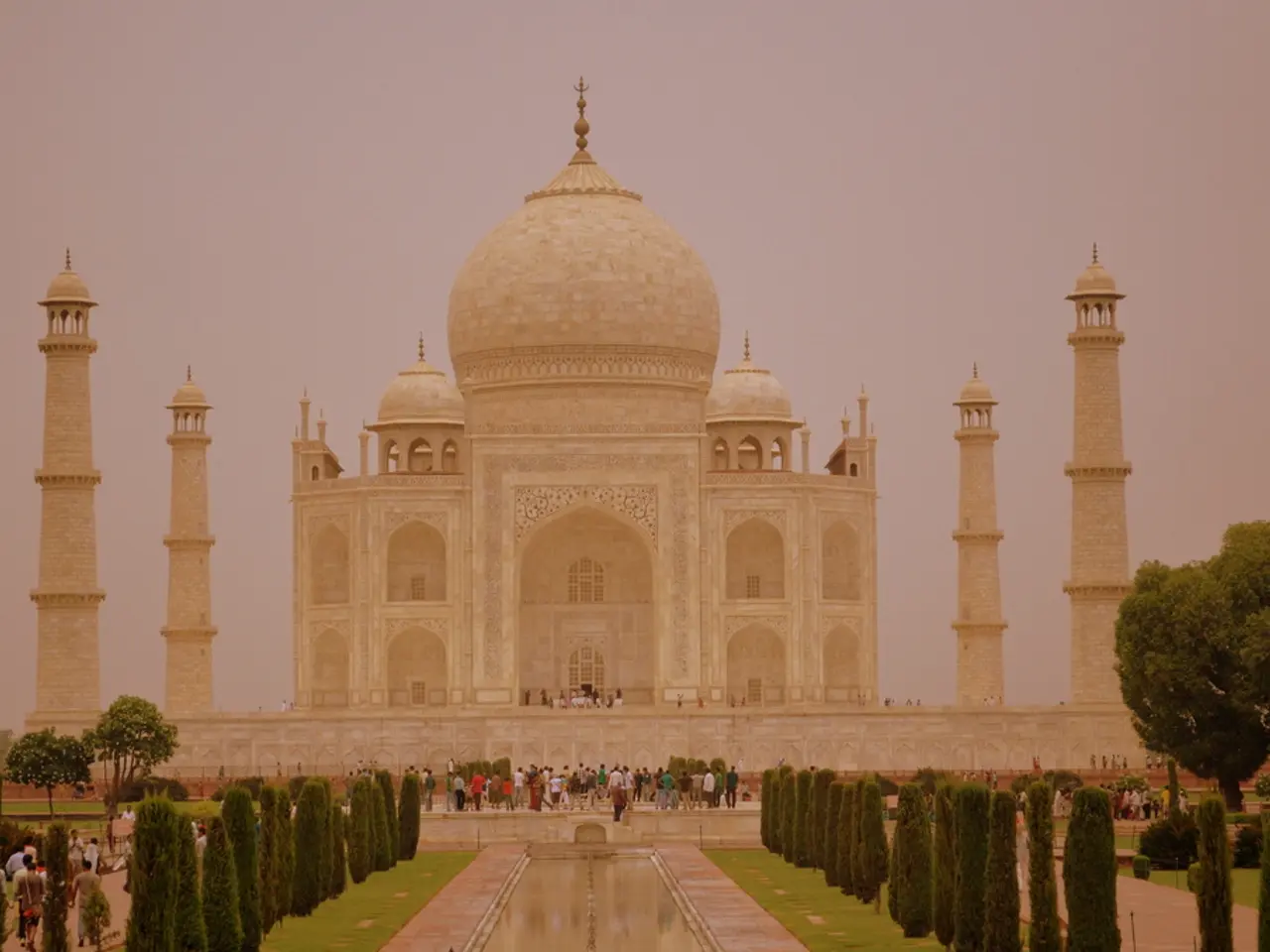Trump Warns India on Oil Purchases from Russia: Potential Diplomatic Consequence
In recent developments, the potential future of US-India relations has become a subject of concern, following former President Donald Trump's threat of increased tariffs on Indian imports due to India's oil purchases from Russia.
India's oil trade with Russia has been seen as a crucial lifeline for Russia during its economic isolation due to the conflict. With several European countries curtailing their imports following Russia's invasion of Ukraine in 2022, India has become one of the largest buyers of Russian oil. However, Trump's threat, made through a post on his social media platform, Truth Social, has added a layer of complexity to this situation.
Trump's statement regarding the tariffs included a remark about the number of people being killed in Ukraine by the Russian War Machine. The discussion around India's oil imports is complex, with Trump suggesting that India may be profiting by reselling Russian oil on international markets.
India is widely recognized as a major economy, emphasizing its intent to protect its national interests against external pressures. In response to Trump's threat, Randhir Jaiswal, India's foreign ministry spokesman, described the US's actions as "unjustified and unreasonable." Jaiswal also highlighted the US's earlier encouragement for India to import Russian gas to stabilize global energy markets.
The tariffs and threats have sparked domestic political criticism in India and affected business confidence. As the US is India’s largest trading partner, with $129 billion in bilateral goods trade in 2024, there is a risk of retaliatory measures from India, consumer boycotts of American products, cancellation of defense or other deals with the US, and potential Indian alignment with anti-American positions in multilateral forums such as the Shanghai Cooperation Organization.
The US-India relationship might face a broader strategic setback, particularly given the contrasting visions of Trump’s “America First” policy versus Modi’s “Make in India” initiative, as well as disagreements over technology sharing, regional security, and geopolitical alignments.
However, avenues for resolution and future cooperation remain. Both nations have kept diplomatic channels open, indicating hope for negotiation toward a compromise tariff rate, possibly around 15-20%, instead of the proposed 25% or higher. A return to a cooperative trajectory would require political will on both sides, mutual concessions, and acknowledgement of each other’s core interests.
Changes in geopolitical conditions, such as shifts in Russia-Ukraine dynamics, US-China competition, or commercial interests, could motivate both sides to recalibrate and find common ground. The future developments in US-India relations remain uncertain, especially considering India's strategic position in the global economy and its historical ties with Washington.
In summary, the Trump administration’s threatened tariff increases and sanctions linked to India’s oil purchases from Russia have introduced serious friction into a bilateral relationship that had been steadily improving over 25 years. The implications range from damaging trade and investment flows to complicating strategic partnership and diplomatic coordination, with the potential for retaliatory actions by India. Yet, avenues for resolution and future cooperation remain contingent on pragmatic diplomacy, geopolitical shifts, and compromises on both sides.
- The complex situation of India's oil imports from Russia has led to discussions not only in the realm of energy and finance but also in the areas of politics, general news, and policy-and-legislation, as the US-India relationship is being affected by political tensions.
- The potential impact of the tariffs proposed by former President Donald Trump on US-India relations extends beyond trade and industry, affecting war-and-conflicts and geopolitical alignments, as India's strategic position in the global economy is being scrutinized.
- Amidst the heightened tensions between the US and India over oil imports and potential tariffs, diplomatic channels remain open, highlighting the importance of politics and policy-and-legislation in finding a compromise, thereby maintaining and fostering future cooperation.




